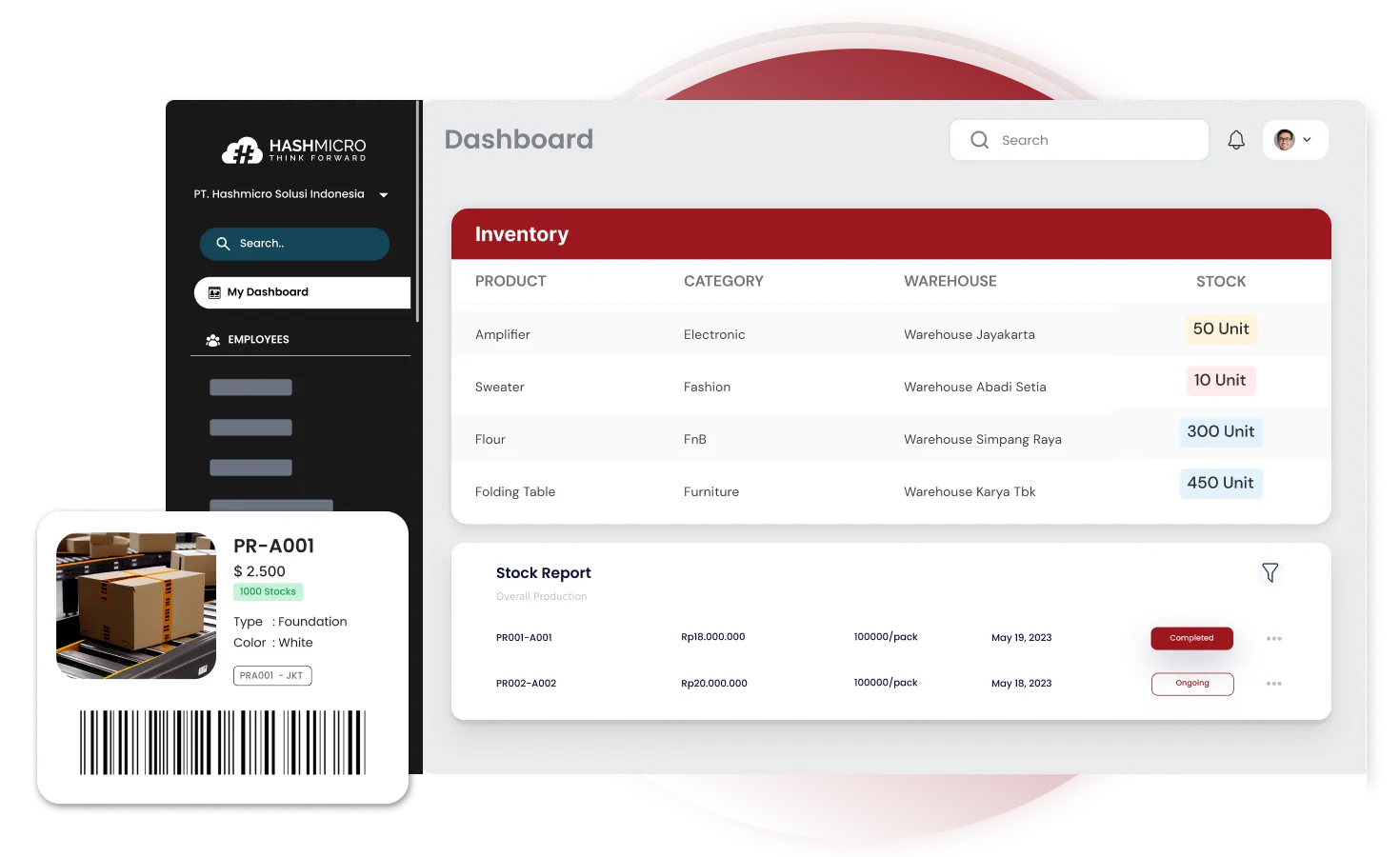Ever wonder why some businesses effortlessly keep their shelves stocked while others struggle to meet demand? Wholesale trade is the silent powerhouse behind these successful operations. It bridges the gap between manufacturers and retailers, ensuring products flow smoothly through the supply chain.
Wholesalers help businesses maintain competitive pricing and avoid stock shortages by purchasing bulk at lower costs. But it doesn’t stop there—wholesale trade simplifies logistics, consolidating large orders and reducing the complexity of managing multiple suppliers.
If you’re looking to streamline your operations and gain a competitive edge, understanding the ins and outs of trading is crucial. To better understand how this essential process can benefit your business, keep reading to explore its key components and advantages!
Key Takeaways |
Table of Contents
What is Wholesale Trade?

Wholesale trade refers to purchasing goods in bulk directly from manufacturers and reselling them to businesses, including retailers, distributors, or other wholesalers. This vital link in the supply chain enables products to move efficiently from producers to the end consumers.
By buying in large quantities, wholesalers secure lower prices, allowing businesses to maintain competitive pricing for their customers. It is essential to ensure the availability of products at the right time and place and reduce operational complexities for manufacturers and retailers.
Wholesalers often manage storage, transportation, and order fulfillment, ensuring that goods are readily accessible when needed. This strategic positioning within the supply chain helps businesses keep inventory stocked, stabilize pricing, and meet market demands without the direct involvement of manufacturers.
Key Components of Wholesale Trade
Wholesale trade is built on several essential components that drive its success. Each aspect is critical in ensuring efficient operations, from purchasing large quantities of goods to maintaining strong relationships with suppliers and customers.
Below are the key components:
- Buying: Buying is essential, where wholesalers purchase large quantities of products directly from manufacturers. Bulk buying reduces costs, allowing wholesalers to resell goods at a margin to retailers. Wholesalers carefully select suppliers based on quality, pricing, and delivery timeframes to ensure a reliable supply.
- Storage: After purchasing, goods are stored in warehouses until they are ready for distribution. Proper storage practices help wholesalers meet fluctuating retailer demands efficiently. Maintaining the quality of perishable items is crucial during storage to ensure product availability.
- Selling: Wholesalers sell products to retailers at bulk prices, offering lower costs than retail sales. They negotiate terms based on quantities, delivery schedules, and payment options, building trust with their buyers. Strong relationships foster repeat business and long-term partnerships with retailers.
- Order Fulfillment: Order fulfillment involves picking, packing, and shipping products to retailers or other businesses. Efficient fulfillment builds trust by ensuring fast and accurate deliveries. Errors or delays in orders can damage business relationships and lead to dissatisfaction.
- Networking and Relationship Building: Networking is vital for maintaining relationships with both suppliers and customers in wholesale trade. Wholesalers engage with suppliers to ensure steady stock availability and negotiate favorable deals. Building strong customer relationships guarantees ongoing demand and business growth.
By focusing on these core components, wholesalers can effectively navigate the complexities of the market. Buying in bulk, efficient storage, and strong relationships with suppliers and customers streamline operations and create lasting partnerships that contribute to long-term success.

The Importance of Wholesale Trade
It is critical in ensuring smooth operations between manufacturers and retailers. It facilitates the movement of goods, helps meet market demands, stabilizes prices, and supports the continuity of the supply chain.
Below are the importance of wholesale trade:
- Facilitating Goods Transfer: It ensures products are transferred efficiently from manufacturers to retailers, providing goods when needed. It consolidates orders, helping manufacturers distribute products to broader markets quickly.
- Meeting Market Needs: Wholesalers maintain an adequate supply of goods, ensuring products are available on store shelves. This prevents stockouts and helps retailers meet consumer demand without delays.
- Stabilizing Prices: By purchasing in bulk, wholesalers stabilize prices, allowing retailers to plan their pricing strategies effectively. They offer consistent pricing even when market conditions fluctuate, ensuring price stability.
- Supporting Supply Chain Continuity: They act as a buffer between manufacturers and retailers, ensuring a steady flow of goods. This is especially critical during crises and supply chain disruptions.
Wholesale trade ensures a reliable, efficient system where goods are transferred, prices are stabilized, and market demands are met. By playing such a pivotal role, wholesalers help maintain the overall health and continuity of the supply chain.
How Wholesale Trade Benefits Businesses

This trade offers several advantages to retailers, including cost reduction, improved brand image, and better inventory management. These benefits help businesses remain competitive and efficient in their operations.
These are how it can benefit your business:
- Cost Reduction: Retailers can reduce costs by purchasing products in bulk from wholesalers at lower unit prices. Bulk buying also allows wholesalers to negotiate better pricing with manufacturers, passing on the savings to retailers.
- Improved Brand Image: Retailers can improve their brand image by offering high-quality products at affordable prices. Direct relationships between wholesalers and manufacturers ensure product quality, positively impacting retailers’ reputations.
- Better Storage and Inventory Management: Wholesalers offer businesses better storage solutions by maintaining large warehouses stocked with various products. Retailers can purchase goods as needed, reducing the burden of maintaining large inventories.
- Access to Broader Supplier Networks: Wholesalers provide access to a wide network of suppliers, giving retailers more product choices. Retailers can offer customers diverse goods without managing multiple supplier relationships directly.
- Access to Credit Facilities: Many wholesalers provide credit terms, allowing retailers to purchase stock and pay later. This helps businesses manage cash flow effectively, making it easier to invest in inventory without upfront costs.
These benefits support businesses in maintaining competitive pricing, efficient operations, and strong brand images.
How Wholesale Trade Data Is Used in the Market
The data provides crucial insights that help businesses manage inventory and guide purchasing decisions. Companies can adjust stock levels by analysing sales ratios and demand fluctuations to meet market needs. Investors use this data to assess broader economic conditions and predict market trends.
Access to up-to-date wholesale data allows businesses and investors to make more informed strategic decisions. Using distribution software and ERP systems enhances the effectiveness of wholesale trade data.
Distribution software offers real-time insights into inventory, sales, and order fulfillment, improving decision-making. ERP systems consolidate all business processes, giving a complete view of operations and boosting efficiency. These tools help businesses stay competitive by leveraging data for smarter, faster responses to market changes.
Examples of Wholesale Trade in Practice
| Industry | Usage |
|---|---|
| Fashion | Wholesalers buy garments in bulk and sell them to retailers. This allows retailers to offer trendy products without dealing with manufacturers directly. |
| Manufacturing | Wholesalers provide raw materials to manufacturers, ensuring consistent supply chains. This lets manufacturers focus on production while maintaining stable pricing. |
| FnB | Wholesalers source food and beverages and distribute them to retailers. This ensures a steady supply, simplifying logistics for both producers and retailers. |
Efficiently Manage Wholesale Trading with HashMicro’s Distribution Software

Struggling with the constant chaos of managing your wholesale business? Imagine having full control over every aspect of your operations without the stress and inefficiencies that slow you down. With HashMicro’s powerful distribution software, managing wholesale trade becomes seamless and hassle-free.
Some of its features are:
- Cash Flow Optimization: Create and send invoices effortlessly, streamlining your financial processes and avoiding delays.
- Thorough Inventory Control: Track stock in real-time, ensuring you never face stockouts or excess inventory.
- Digitalization of Procurement Activities: Automate procurement tasks to improve efficiency and reduce manual errors.
- Program for Customer Retention: Build stronger relationships and increase loyalty with tools focusing on customer engagement.
By leveraging these powerful tools, you can eliminate inefficiencies, reduce errors, and focus on growing your business. We understand choosing the best distribution software can be tough, but HashMicro delivers proven features that turn frustrations into smooth, data-driven success.
Conclusion
Managing wholesale trade efficiently can be the difference between success and frustration. They simplify the flow of goods from manufacturers to retailers, stabilizing prices and ensuring that businesses can meet market demand. With the right strategies, businesses can leverage wholesale trade to streamline operations and gain a competitive edge.
HashMicro’s distribution software provides the tools to take your wholesale business to the next level. Features like real-time inventory tracking and customer retention programs empower businesses to eliminate inefficiencies and grow. Ready to see how it can work for you? Schedule a free demo today and experience the transformation firsthand!

Frequently Asked Questions
-
What is wholesale and examples?
Wholesale involves buying goods in bulk from manufacturers and reselling them to retailers. Examples include wholesalers purchasing clothing from brands or raw materials for factories.
-
What is the difference between retail trade and wholesale trade?
Wholesale trade sells large quantities to retailers, while retail trade sells directly to consumers. Retail focuses on smaller quantities, with higher unit prices than wholesale.
-
What are the functions of wholesale trade?
It stabilizes prices, ensures product availability, and manages stock efficiently. It also bridges manufacturers and retailers, streamlining the supply chain.




































